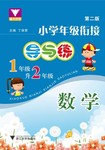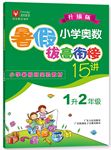题目内容
Sydney Fredette has a lot of things to deal with. Not only is she a high school student, but she has also set up her own organization, Beary Merry Christmas. She volunteers(自愿)to serve poor kids and families in Orange Country in California, US.
To remember her best friend who died of cancer nearly 10 years ago, Fredette decided to serve those in Orange Country who are less lucky than she is.
She began with the simple idea of collecting donated(捐赠的) Build-A-Bears, the popular toy animal that is made by children themselves in the stores’ workshops. Fredette then gave them as gifts to the homeless children in California during the holiday season.
With donations at more than 100 bears a year, Fredette and volunteers host activities every year, where volunteers not only give out the bears, but also clothing, meals, and other things.
Not wanting to limit(限制)the giving to just the holiday months, Fredette now hosts other activities for Valentine’s Day, Mother’s Day and Halloween, providing the chance for her volunteer team to make a difference through the year.
"I love making relationships with the people I serve," Fredette said. "The thanks they have, hearing their stories and seeing how happy they are, it’s so cool."
Future plans for Fredette include building a public food bank and providing a self-development class for students in her school who will soon attend college.
Heading to college herself in the fall, Fredette is looking to stay local and continue to help out in her hometown. In fact, she was regarded as a "Dreamer & Doer" not long ago for her work in improving her community, along with 32 other high school students.
1.Fredette started her own organization to .
A. keep her life busy B. help poor people
C. look after the sick D. thank her best friend
2.What can we learn about Beary Merry Christmas?
A. It holds one activity a year.
B. It offers service around America.
C. It buys bears from the stores.
D. It gives out other things besides bears.
3.It can be inferred(推断)that Fredette .
A. likes telling people stories
B. dreams of being a teacher
C. is pleased with what she does
D. plans to leave California for college
4.What can be the best title for the passage?
A. Giving back to society
B. Getting on well with others
C. Providing a food bank
D. Improving community colleges
1.B 2.D 3.C 4.A 【解析】试题分析:本文叙述了Sydney Fredette是一名中学生,她为了纪念她最好的朋友,她和其他的一些志愿者一起建立了组织Beary Merry Christmas来为一些贫穷的孩子捐赠玩具熊和其他的东西,她被授予一个称号“Dreamer & Doer”。 1. 2. 3. 4. 浙大优学小学年级衔接导与练浙江大学出版社系列答案
浙大优学小学年级衔接导与练浙江大学出版社系列答案 小学暑假作业东南大学出版社系列答案
小学暑假作业东南大学出版社系列答案 津桥教育暑假拔高衔接广东人民出版社系列答案
津桥教育暑假拔高衔接广东人民出版社系列答案 波波熊暑假作业江西人民出版社系列答案
波波熊暑假作业江西人民出版社系列答案

